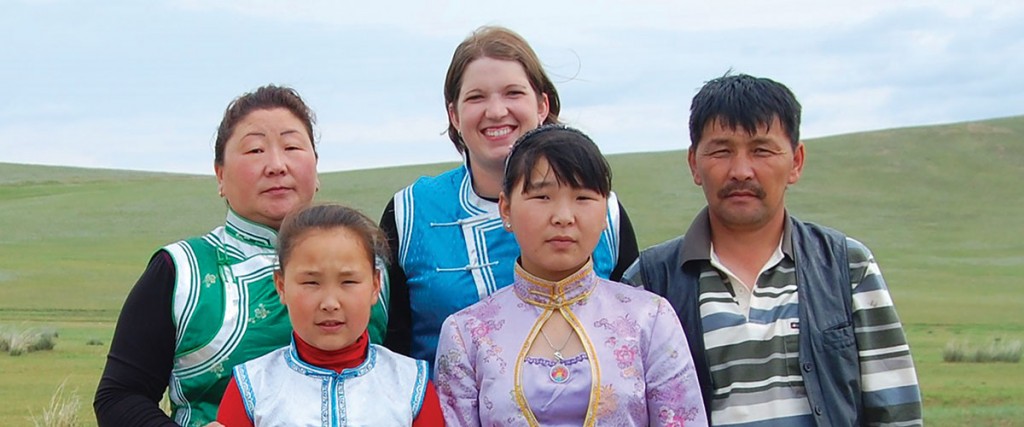Page 199 • (2,355 results in 0.107 seconds)
-
Campus Partner Agreement (docx) download
-
, has made ground-breaking contributions to the study of the origins of religion, and the psychological impact of religious and cultural diversity in today’s globalized world. His research and findings appear in some of the most influential scientific journals in the world. He is the author of Big Gods: How Religion Transformed Cooperation and Conflict. For more information, see website. Video(s): Big Gods and the Fabric of Society Interview Selected Publications: Big Gods: How Religion Transformed
-
force initiated a crowdfunding campaign and raised over $30,000 — nearly four times the group’s original goal of $8,000. The funds have already assisted individual undocumented students to persist at PLU and also have assisted the group to set up a textbook lending library. First Dean for Inclusive Excellence Beginning in January 2018, Dr. Jen Smith will serve as PLU’s first Dean for Inclusive Excellence. In this role, Smith will provide necessary attention to Diversity, Social Justice and
-
with people of diverse backgrounds, cultures, and lifestyles, and what have these experiences taught you about human diversity and its implications? (250 words) What plans have you made to ensure that you can successfully complete the program? Consider your finances, time management, family and community responsibilities, etc. Field Plan: Students entering their first year (2-year program) of fieldwork are required to be in their field practicum a minimum of 320 hours per semester (~ 21 hours per
-

engineering school such as Columbia University or Washington University in St. Louis. The total length of study is usually five years: three years at PLU and two years at the engineering school. Hence, the program is often referred to as “3-2 Engineering.” “At PLU, students are getting an education that includes communication skills, justice, diversity, and the mission to care for the planet and for people,” Hay said. “That’s a really, really strong job candidate and a student who is mission-driven in
-

, assistant professor of anthropology and director of the new program. “But also I think social justice issues, diversity and sustainability are a big part of the Peace Corps.” The decision to bring the program to campus was easy. After mapping out the Peace Corps certificate requirements, Tamara Williams and Joel Zylstra — directors of the Wang Center for Global and Community Engaged Education and the Center for Community Engagement and Service, respectively — found that some students were already
-
faculty who has museum-exhibition experience, to accompany staff to the Cobbs’ home to accept the piece. During that visit, after a lengthy conversation about PLU and African art, Dr. Cobb also gave PLU a beauty-parlor sign from Ghana (this is now framed and can be seen in the Center for Diversity, Justice, and Sustainability, located in the Anderson University Center). Dr. Cobb also indicated he would speak with his wife about one or two additional pieces they might also give to PLU. In October 2007
-
herbarium curator at the Slater Museum for ten years. Many of the specimens were collected, identified, annotated and beautifully mounted by Irene, and upon her retirement she turned her energies to expansion and curation of the PLU herbarium collections to reflect the diversity of western Washington flora. In addition to her work in the Herbarium, the most obvious fruit of her post-retirement labors is her illustrated key, Vascular Plants of Western Washington, published in 1984. Irene Creso started
-
Dr. Alberto Ledesma speaks at the 3rd Annual César Chávez & Dolores Huerta Latino Studies Lecture Annual César Chávez and Dolores Huerta Latino Studies LectureThe César Chávez and Dolores Huerta Latino Studies Lecture uplifts Latino/a/x scholars, artists, and activists who embody the legacies of our communities’ leaders. Celebrating the interdisciplinarity of Latino Studies and the diversity of our peoples, each lecture features different kinds of knowledge and forms of activism. Speakers visit
-
that affect individual lives over time and how individuals, in turn, influence the world in which they live. Students of history develop lifelong habits of critical thinking, inquiry-based reading of texts, effective research skills, and appreciation of complexity and diversity in human behavior. History majors also develop the skills needed to work collaboratively, organize and deliver oral presentations on historical subjects, and produce substantial research papers that demonstrate the student’s
Do you have any feedback for us? If so, feel free to use our Feedback Form.


